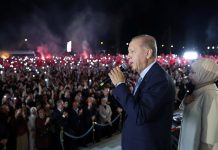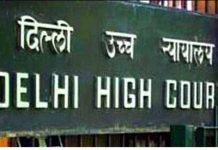
On December 10, 2008, in a remote village of coastal Gujarat, 14-year-old Mahesh circled a funeral pyre quietly and set it aflame. On top of it was laid an effigy of grass draped in cloth, to represent his father whose dead body he never got to see. Mahesh’s father, Ramesh Nagji, 35, was one of the five-men crew of the boat Kuber, which 10 Pakistani terrorists hijacked last month on the high seas.
It is believed that the terrorists killed Nagji and three other fishermen and threw their bodies in the waters below immediately after seizing the boat. The terrorists killed the boat’s captain a few days later when he reached them to Mumbai, where they went on the rampage, killing at least 170 people over three days.
“Father phoned the day he was leaving Porbandar for fishing,” Mahesh recalled, haltingly, speaking to TEHELKA right after Nagji’s pseudo-funeral. “He asked if he should bring a mobile phone on his next visit home. I said, maybe later.”
No One Has Yet Come To Tell The Family Of Kuber’s Fisherman Ramesh Nagji That He Has Been Killed
In the weeks since the November 26-29 terror attacks on Mumbai, while vocal urbanites across India angrily demanded parity in the public grief for the elite killed at luxury hotels and those killed at Mumbai’s railway station and other locations, no one — politician, government official, news reporter, socialite, concerned citizen, NGO, prowar, antiwar — had cared to visit the Nagji household in the remote village of Simar in Gujarat’s Junagarh district.
Nobody lit candles for him or waved placards seeking to avenge his death. Indeed, no one had even told Nagji’s family that their beloved son, who was, importantly, their biggest source of income with his princely salary of Rs 3,000 a month, was no more.
“People at the highway teashop read the boat’s name in a newspaper and asked me if it wasn’t the one my son worked on,” says Ramesh’s father, Nagji Lakha Bambaniya, a 60-year-old labourer who earns a daily wage in road construction. Yes, four policemen came calling, twice. On both occasions, they grilled him to check if Ramesh had behaved suspiciously in recent months. “Even they didn’t tell me that my son was dead. But I saw TV at a neighbour’s and knew the truth.”
Both The Centre And The State Government Are Silent On Compensation For Solanki’s Family
With his widowed daughter-in-law, Bambaniya went to Porbandar, 250 km up north, where his son had lived six years during the fishing season. “Your son is dead,” the boat’s owner, Hiralal Masani, told him and gave him Rs 5,000. “When we last spoke on the phone my husband said he was keen to visit us soon,” recalls his widow Jassi, distraught and now dependant on her son, Mahesh, to feed her and her three younger daughters. “With my husband gone, I don’t know what to do now.”
On the day of Nagji’s ‘funeral’, the family and friends of Kuber’s captain, Amar Singh Solanki, had gathered in his village of Zoravadi in the nearby Union Territory of Diu, to get their heads shaved. They were luckier than Nagji’s family had been: they actually got a dead body to cremate, as the terrorists had left Solanki’s body behind in the boat after killing him at Mumbai. The local Congress chief and the district collector had visited Solanki’s family right after the tragedy, but no one has since turned up. Said Dileep, 20, the eldest of Solanki’s three sons: “We just don’t know how we will pay for our household expenses, leave alone our fees. We want the government to help us continue our studies.” Not surprisingly, both the Centre and the state government have been silent on providing any compensation to Solanki’s family.
 Fishermen say their lot is hardly any better even when they are alive. For one, their income is inversely proportional to the risks of being caught by the Pakistan marines. Then, while they bring riches to those up the food chain — boat owners, meat-processing units and exporters — the fishermen themselves eke out a miserable life.
Fishermen say their lot is hardly any better even when they are alive. For one, their income is inversely proportional to the risks of being caught by the Pakistan marines. Then, while they bring riches to those up the food chain — boat owners, meat-processing units and exporters — the fishermen themselves eke out a miserable life.
The Pakistanis twice caught Ramesh Devji, 35, a boat captain from Diu who works in Porbandar. The first time he was in jail 17 months, the second time only four. “I don’t quite like this work,” he told TEHELKA last week even as he prepared to sail out for another 10 days of fishing. “The money is bad and there is too much uncertainty.”
But few have another option. Premji Shoma, a 25-year-old boat captain from Diu, was released from the Karachi jail just three weeks back. Pakistani marines caught him in November 2006. Quite obviously, his employers didn’t bother to pay his family any upkeep for the duration that he was in Pakistan. Yet, he thinks he is incredibly lucky. “I never thought I’ll be free before six or seven years,” he beams as he says. In the jail, Shoma had no contact with the outside world. He didn’t know if his family knew that he was alive. Some Indian High Commission officials visited the inmates at the jail and raised their hopes of an early release. “They said 15 days. We waited six months. Nothing happened.”
The family of 25-year-old Dinesh Lakshman Chudasama, a rare boat owner who also captains his boat, is, however, praying that he will be let off sooner. Chudasama’s boat was seized on October 1 last, as he was preparing to turn back and return home in time for the Nauratra festival. “He just got engaged,” his sister, Sumitra, said.
Incredibly, Chudasama called them once from the jail in Karachi, from a borrowed mobile phone. “One of his boat hands arrested with him was a daily wage labourer whose family doesn’t know he was hired for the trip,” Sumitra said. “My brother asked that his family be informed of his whereabouts.”












